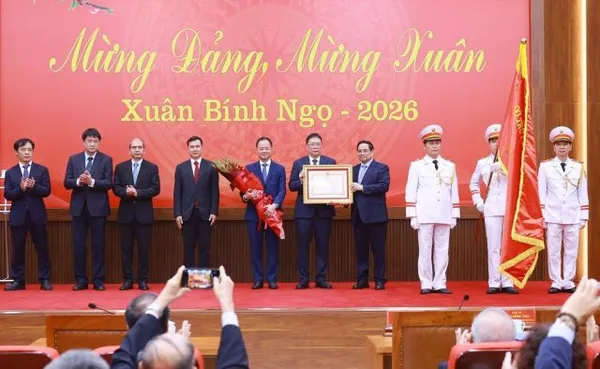_med.jpg) Economy
Economy

.jpg)
|
| Stavian Recycling is focusing on developing the Stavian Recycled Plastic Plant project. Photo courtesy of the firm |
HÀ NỘI Stavian Recycling Joint Stock Company, a member of Stavian Group is developing the Stavian Recycled Plastic Plant project to establish a circular ecosystem for plastic waste in Việt Nam.
Its aim is to solve the environmental pollution problem and contribute to the conservation of exploited natural resources as countries worldwide and Việt Nam's target to develop a circular economy.
Stavian Recycled Plastic Plant is expected to be built in a 3ha area in northern Việt Nam, applying the most advanced and modern European technology, which many multinational corporations have applied. Using modern technology, the project will meet a safe and effective recycling supply chain, including building a collection - classification - cleaning - reconstitution, and recycling system, ensuring the production of rPET resins meets international quality standards set by the EU.
Stavian Recycling has worked with provincial authorities and urgently promoted work related to investment procedures according to the Vietnamese Government’s regulations. Stavian Recycled Plastic Plant is expected to start construction in the first quarter of 2024 and operate in the third quarter of 2025 with a capacity of more than 17,000 tonnes a year. The project would create thousands of jobs for local people, significantly improving social security issues.
According to statistics from the Ministry of Natural Resources and Environment, there are about 1.8 million tonnes of plastic waste discharged into the environment each year in Việt Nam, 0.28 million to 0.73 million tonnes of which are released into the sea - but only 27 per cent of it is recycled and utilised by establishments and businesses.
The treatment and recycling are still limited when up to 90 per cent of plastic waste is processed by burying, landfilling, and burning; only the remaining 10 per cent is recycled. Classification, recovery, recycling, and plastic waste treatment are still limited. The amount of plastic waste and nylon bags in Việt Nam accounts for about 8-12 per cent of household solid waste. This could lead to environmental disasters, especially ocean pollution, posing a problem for businesses in finding comprehensive solutions for a sustainable future. VNS

_med.jpg)


